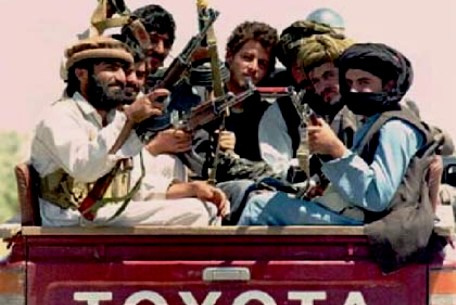Taliban Circumventing the AfPak

For the first time since the US attack on Afghanistan, the US and Afghan officials have confirmed a meeting with the Taliban. The new Taliban office in Qatar has opened new doors for negotiations with the US. In an interview with Pir-Mohammad Mollazehi, we bring you the latest developments regarding this issue:
IRD: It seems that new developments regarding Afghanistan’s national reconciliation are in motion. How would you assess this in regards to the possible opening of a new Taliban office in Qatar?
PM: Negotiations between the Taliban and the Americans was confirmed about 10 days ago, while this time each side adopted different positions than they held in the past. Previously, the Taliban would outright refuse any sort of negotiations with the US, or if there were any, they would want them to be behind closed doors, confidential, and away from the public eye. During some negotiations in Germany for instance, Tayyab Agha abruptly stopped talks with the US after their disclosure.
For the first time, the Taliban have taken the first step in revealing negotiations with the US and the agreements that were reached; based on which the Taliban will open a political office in Qatar. This is a significant development. Firstly, it shows the Taliban’s readiness to engage in serious negotiations with the US. If this trend continues, it also makes it possible for Kabul to follow in the same vein. Therefore, the Taliban now has a specific address, and anyone wanting to negotiate with them knows where to go. This will automatically pave the way for the Afghan and Pakistani governments’ future talks with the Taliban. It is true to say that in this instance the Americans have left Afghanistan and Pakistan behind to facilitate this development with the Taliban; but ultimately no peace will come about without the participation of all the governments in question. Accordingly, it seems the Americans have taken the first real step toward exiting Afghanistan constructively, and the Taliban have answered their call.
IRD: Up to now it seemed that Kabul was in charge of establishing negotiations with the Taliban. Is Kabul finding the American-led developments acceptable?
PM: Initially Kabul refused to support any negotiations taking place outside its framework, preferring negotiations to be between Afghanis and on Afghan soil. However, after the US-Taliban negotiations developments, Kabul has changed its position. The Afghan government is now tolerating the Taliban establishing itself in other countries; despite the fact that initially they reacted by recalling their ambassador from Qatar. The change in Kabul’s position as regards the Taliban is due to pressure and not choice, as the official policy of Afghanistan is still to lead the negotiations with the Taliban not to follow.
IRD: Considering the tensions between the US and Pakistan, how do you think Pakistan will react to this issue?
PM: Pakistan has no choice but to except the reality, and it is in no position to create resistance. If Pakistan feels that the US is firm on its position with the Taliban it will not take an opposing stance. Of course this does not mean that Pakistan does not have any tools to create scenarios that will lead to it securing its interests. Neither Afghanistan nor Pakistan have any control over the Taliban and it decides to negotiate with the US independently; neither country will be able to have much influence on the Taliban’s decisions. Pakistan will attempt to maintain its interests but it cannot disrupt these developments.
IRD: How about the Taliban’s ties to Al Qaeda? One of America’s preconditions is the Taliban’s disconnection from this group. Are the negotiations this significant for the Taliban to cut ties with Al Qaeda?
PM: I don’t think that the Taliban will fully cease connections with Al Qaeda. It is probable that Al Qaeda in Waziristan and its subsets that have recruits from different nationalities (Bangladeshi, Indonesian, Uzbek, and Chechen, etc.) are to be moved to another location. If they resist any further they could risk their own survival as well as the Taliban’s, which is one of their main sponsors. During negotiations, the Taliban will probably agree to remove Al Qaeda members from the region to another location, as previously some members have been relocated to Yemen, Somalia, and other Arab countries.
Al Qaeda is a global organization operating in many countries, whereas the Taliban are a localized group. The US’ policy is to separate these two organizations from each other but in practice a full disconnection between the two groups is not plausible. If it weren’t because of the Taliban’s support of Al Qaeda the US would have not attacked Afghanistan in the first place, and the Taliban would still be in power.
Therefore, if there were going to be any agreements between the Taliban and Al Qaeda it would be for Al Qaeda to relocate a part of its forces from Waziristan. This will result in lessened US pressure on the Taliban.

